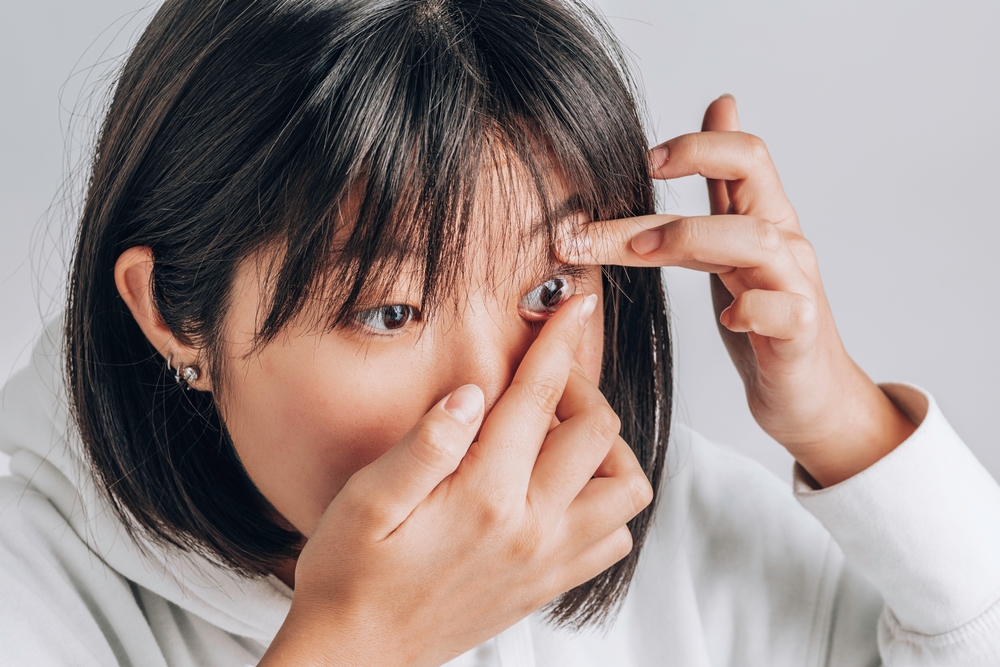
Dry eye is a common condition that affects millions of people worldwide. It occurs when the eyes do not produce enough tears or the tears evaporate too quickly, leading to discomfort, irritation, and even vision problems. Various factors can contribute to dry eye, including age, certain medical conditions, environmental factors, and the use of contact lenses.
The Link Between Dry Eye and Contact Lenses
Contact lens wear can directly impact the development and progression of dry eye. The physical presence of the lens on the eye's surface can interfere with the natural blinking process, which is essential for distributing tears across the eye. This disruption can lead to a reduction in tear production and an increase in tear film instability, resulting in dry eye symptoms.
Additionally, the materials and design of contact lenses can also contribute to dry eye. Certain lens materials, such as those that are less permeable to oxygen, can cause the eye to become drier over time. The fit and movement of the lens on the eye can also affect tear film quality and distribution, leading to discomfort and irritation.
Symptoms of Dry Eye in Contact Lens Wearers
If you are a contact lens wearer, you may experience a range of dry eye symptoms, including:
- Persistent eye discomfort or irritation
- Redness or inflammation
- Feeling of grittiness or foreign object in the eye
- Blurred or fluctuating vision
- Increased sensitivity to light or wind
- Excessive tearing or watery eyes
- Difficulty wearing contact lenses for extended periods
Tips for Managing Dry Eye While Wearing Contact Lenses
To help manage dry eye while wearing contact lenses, consider the following tips:
- Adjust Your Wear Schedule: If you experience persistent dry eye symptoms, consider reducing the number of hours you wear your contact lenses or switch to daily disposable lenses, which can help minimize the buildup of deposits and irritants.
- Use Lubricating Eye Drops: Applying preservative-free lubricating eye drops can help replenish the tear film and alleviate dry eye symptoms. Use the drops as directed, typically before and after lens wear.
- Stay Hydrated: Drinking plenty of water throughout the day can help maintain proper tear production and reduce the risk of dry eye.
- Adjust Environmental Factors: Factors like air conditioning, heating, and exposure to smoke or dust can exacerbate dry eye. Try to minimize your exposure to these environmental triggers when possible.
- Take Breaks from Lens Wear: Give your eyes a break from contact lenses by wearing glasses for a few hours or days, allowing your eyes to rest and recover.
- Consider Dietary Supplements: Certain dietary supplements, such as omega-3 fatty acids, can help reduce inflammation and improve tear film quality, which may alleviate dry eye symptoms.
Proper Lens Care to Prevent Dry Eye
Maintaining proper contact lens care is essential for preventing dry eye and other complications. Follow these guidelines to ensure your lenses are well-cared for:
- Clean your lenses thoroughly with the recommended cleaning solution after each use.
- Disinfect your lenses as directed, using the appropriate disinfecting solution.
- Store your lenses in a clean, fresh storage solution when not in use.
- Replace your lenses according to the manufacturer's recommended schedule.
- Avoid exposing your lenses to water, as this can introduce harmful microorganisms.
- Never sleep in your contact lenses unless they are approved for overnight wear.
When to See an Optometrist for Dry Eye and Contact Lenses
If you experience persistent or worsening dry eye symptoms while wearing contact lenses, it's important to seek the advice of an optometrist. An eye doctor can perform a comprehensive eye examination to determine the underlying cause of your dry eye and provide personalized treatment recommendations.
An optometrist may recommend:
- Specialized dry eye treatments, such as prescription eye drops or ointments
- Adjustments to your contact lens fit or type
- Procedures to improve tear production or reduce tear evaporation
- Lifestyle modifications to address environmental and dietary factors
By addressing the root cause of your dry eye, an optometrist can help you find relief and ensure your continued comfort and safety while wearing contact lenses.
Schedule Your Consultation with Arora Vision Associates Today
Maintaining healthy eyes while wearing contact lenses is essential for your overall eye health and comfort. By understanding the link between dry eye and contact lenses, recognizing the symptoms, and implementing the right management strategies, you can enjoy the convenience and benefits of contact lens wear without compromising your eye health.
If you experience persistent or worsening dry eye symptoms, schedule a comprehensive eye exam with our experienced optometrist to ensure your contact lenses are not contributing to dry eye and to get personalized recommendations for managing your eye health. Visit Arora Vision Associates at our office in Cherry Hill, New Jersey, or call (856) 406-7445 to book an appointment today.




